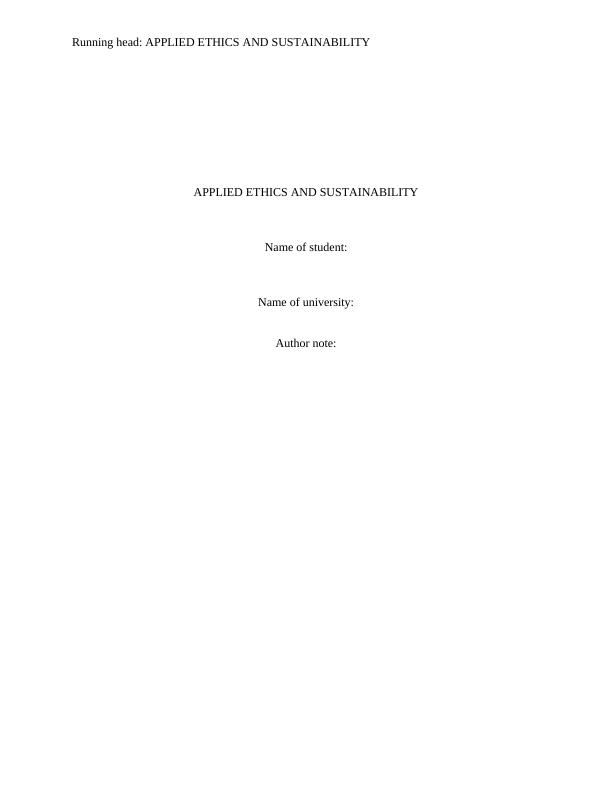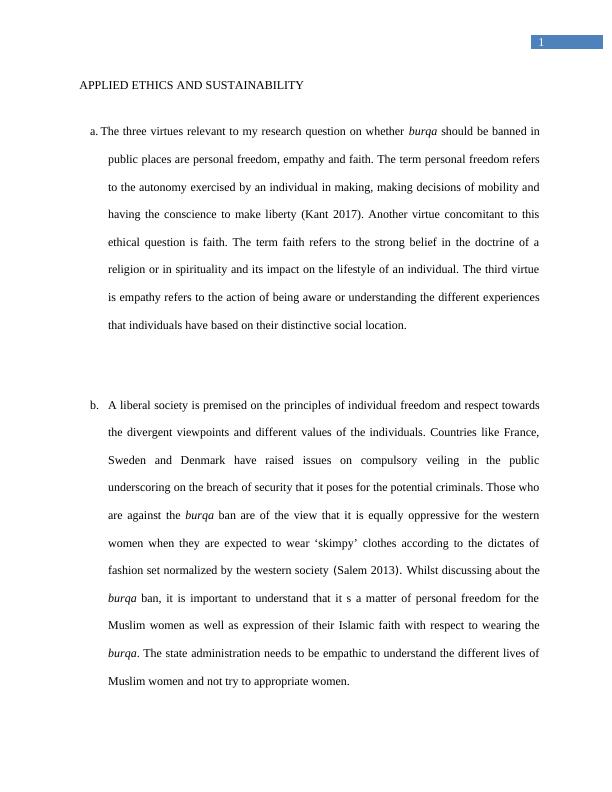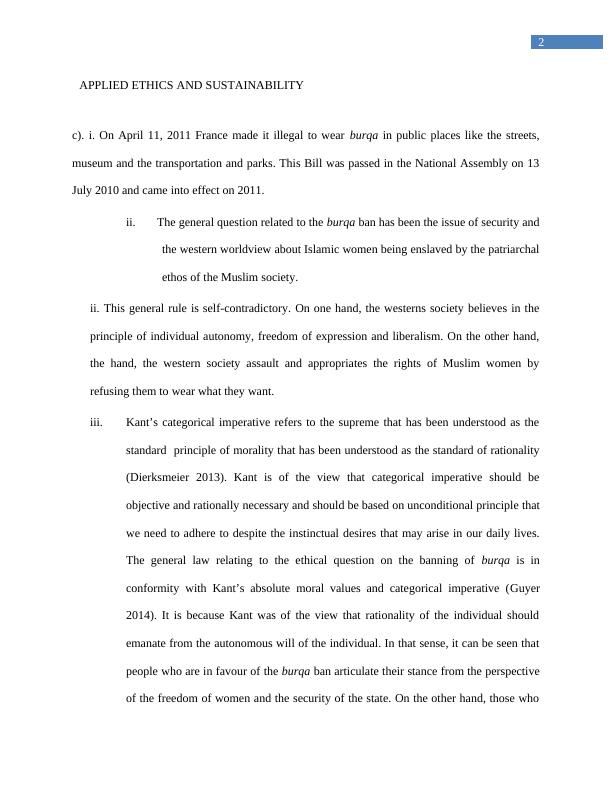Applied Ethics and Sustainability - Sample Assignment
Added on 2021-06-14
6 Pages1236 Words132 Views
Running head: APPLIED ETHICS AND SUSTAINABILITYAPPLIED ETHICS AND SUSTAINABILITYName of student:Name of university:Author note:

1APPLIED ETHICS AND SUSTAINABILITYa.The three virtues relevant to my research question on whether burqa should be banned inpublic places are personal freedom, empathy and faith. The term personal freedom refersto the autonomy exercised by an individual in making, making decisions of mobility andhaving the conscience to make liberty (Kant 2017). Another virtue concomitant to thisethical question is faith. The term faith refers to the strong belief in the doctrine of areligion or in spirituality and its impact on the lifestyle of an individual. The third virtueis empathy refers to the action of being aware or understanding the different experiencesthat individuals have based on their distinctive social location.b.A liberal society is premised on the principles of individual freedom and respect towardsthe divergent viewpoints and different values of the individuals. Countries like France,Sweden and Denmark have raised issues on compulsory veiling in the publicunderscoring on the breach of security that it poses for the potential criminals. Those whoare against the burqa ban are of the view that it is equally oppressive for the westernwomen when they are expected to wear ‘skimpy’ clothes according to the dictates offashion set normalized by the western society (Salem 2013). Whilst discussing about theburqa ban, it is important to understand that it s a matter of personal freedom for theMuslim women as well as expression of their Islamic faith with respect to wearing theburqa. The state administration needs to be empathic to understand the different lives ofMuslim women and not try to appropriate women.

2APPLIED ETHICS AND SUSTAINABILITYc). i. On April 11, 2011 France made it illegal to wear burqa in public places like the streets,museum and the transportation and parks. This Bill was passed in the National Assembly on 13July 2010 and came into effect on 2011. ii.The general question related to the burqa ban has been the issue of security andthe western worldview about Islamic women being enslaved by the patriarchalethos of the Muslim society.ii. This general rule is self-contradictory. On one hand, the westerns society believes in theprinciple of individual autonomy, freedom of expression and liberalism. On the other hand,the hand, the western society assault and appropriates the rights of Muslim women byrefusing them to wear what they want.iii.Kant’s categorical imperative refers to the supreme that has been understood as thestandard principle of morality that has been understood as the standard of rationality(Dierksmeier 2013). Kant is of the view that categorical imperative should beobjective and rationally necessary and should be based on unconditional principle thatwe need to adhere to despite the instinctual desires that may arise in our daily lives.The general law relating to the ethical question on the banning of burqa is inconformity with Kant’s absolute moral values and categorical imperative (Guyer2014). It is because Kant was of the view that rationality of the individual shouldemanate from the autonomous will of the individual. In that sense, it can be seen thatpeople who are in favour of the burqa ban articulate their stance from the perspectiveof the freedom of women and the security of the state. On the other hand, those who

End of preview
Want to access all the pages? Upload your documents or become a member.
Related Documents
Is Burqa Banning Freedom or Discriminationlg...
|12
|808
|24
